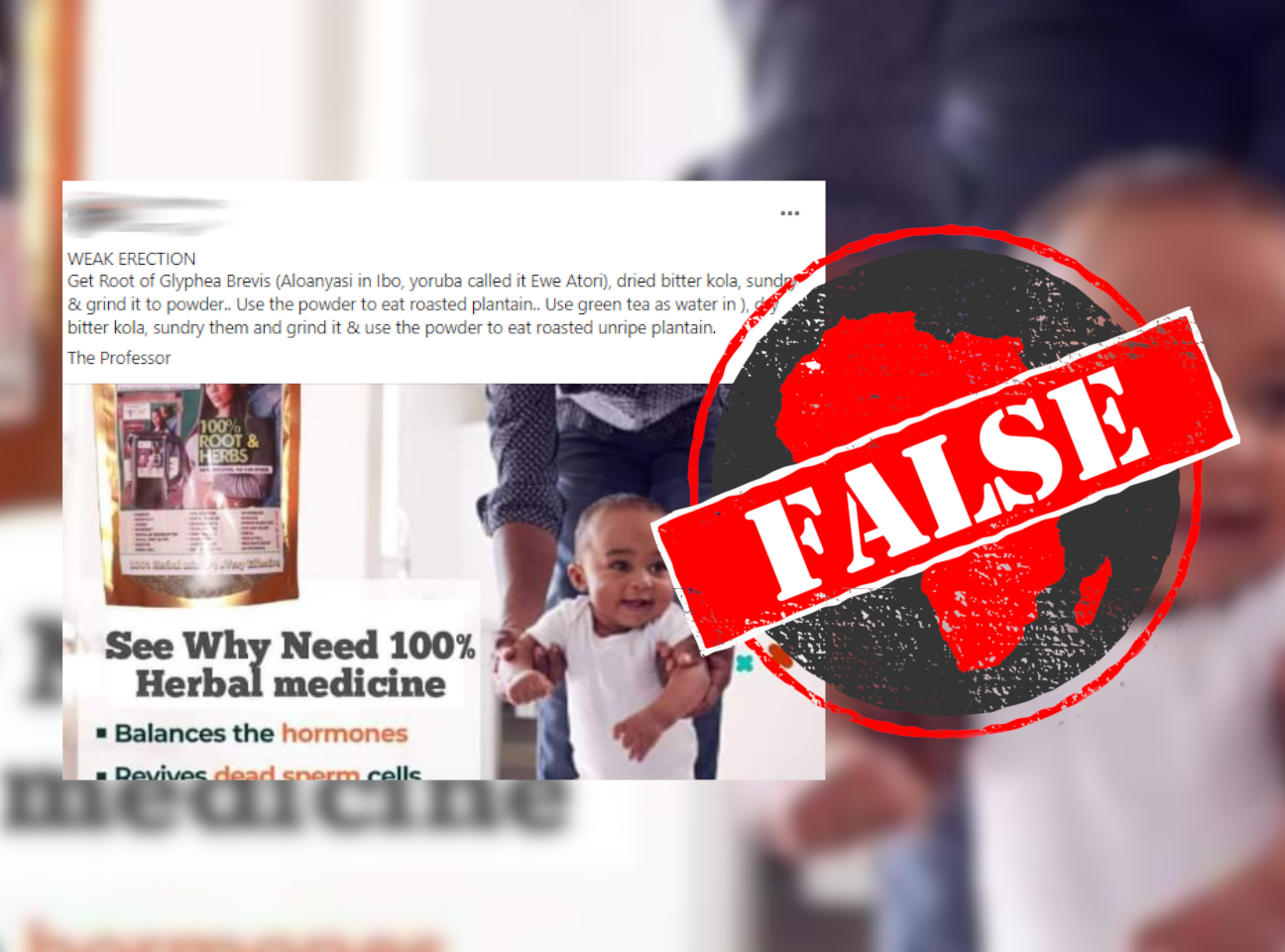A message on the Nigeria-based Facebook page “The Professor” claims a drink made from the root of Glyphaea Brevis, dried bitter kola and green tea is a “remedy for weak erection”.
It says the mixture should be eaten with “roasted unripe plantain”.
Erectile dysfunction is a health condition in which men can’t get or keep an erection firm enough for sex.
The causes of a poor erection include diabetes, high blood pressure, alcohol abuse, enlarged prostate and taking certain drugs. Sleep disorder can be another cause.
But will this remedy really cure erectile dysfunction?

No scientific evidence
Africa Check has previously debunked claims by “The Professor”.
Paul Nwafor, an actual professor of reproductive pharmacology and an expert in aphrodisiacs – substances that promote sexual arousal – said the combination might improve erections but was not a cure.
“Whoever came up with the mixture should provide us with scientific evidence to support the claim.”
Dr Adefemi Adedugbe, a general practitioner, urged people to ignore the mixture and visit a doctor to determine the underlying cause of the problem.
“I am hearing this for the first time,” the doctor told Africa Check.
“Such a claim should be ignored, please. Before a doctor prescribes treatment for a weak erection, he or she must know the actual causes of the problem. The person who created the mixture is only trying to make money from his product; it is not a cure for weak erection.”
Africa Check has debunked similar claims that onions, lime, kola, garlic drink and male papaya root cure erectile dysfunction. All the claims are incorrect.
Olayiwola Shittu, a professor of urological surgery at the University of Ibadan in western Nigeria, advised men with erectile dysfunction to see a doctor, and not try unproven and possibly harmful home remedies.
Republish our content for free
For publishers: what to do if your post is rated false
A fact-checker has rated your Facebook or Instagram post as “false”, “altered”, “partly false” or “missing context”. This could have serious consequences. What do you do?
Click on our guide for the steps you should follow.
Publishers guideAfrica Check teams up with Facebook
Africa Check is a partner in Meta's third-party fact-checking programme to help stop the spread of false information on social media.
The content we rate as “false” will be downgraded on Facebook and Instagram. This means fewer people will see it.
You can also help identify false information on Facebook. This guide explains how.


Add new comment